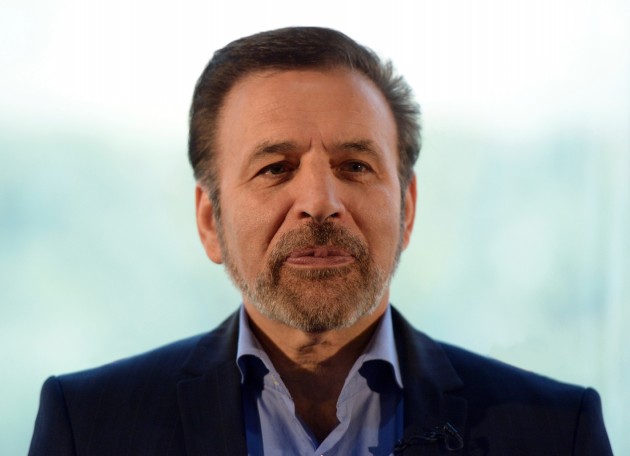Iran’s Minister of Communications Says He Will Oppose Stringent Internet Blocking
“As a member of the the Committee [to Determine Instances of Criminal Content], along with other Committee members from the cabinet, we disagree with certain past methods of this Committee regarding the blocking of Internet websites, and we plan to strive in the Committee to review and reduce the existing rigid approach, so that people can access more Internet websites,” said Mahmoud Vaezi.
In order to deliver on some of its promises for reforms, the Rouhani cabinet would have to tackle the issue of access to Internet websites and the nearly five million blocked websites that Ahmed Shaheed, the United Nations Special Rapporteur on Human Rights in Iran, mentioned in his most recent report to the UN General Assembly in October, “including websites that are dedicated to news, music and women’s rights, web pages maintained by ethnic minorities and social media sites.”
On November 11, reporters asked Iran’s Minister of Communications whether access to Facebook would be unblocked for Iranian users. “A decision about this subject will be made in a Committee formed by the Judiciary, and one of my deputies will serve as the representative from the Ministry of Communications at this Committee,” he said. “The cabinet’s opinions will be coordinated, but ultimately the decision will be made by the aforementioned Committee.”
While Iran’s new cabinet members, including the Foreign Minister, use Facebook as an important communication tool for shaping Iranian and non-Iranian public opinion, earlier this week, Iran’s Police Commander Esmaeel Ahmadi Moghaddam criticized “certain government officials,” telling a group of reporters, “It’s not a good thing that certain government officials are attempting to slowly pass the red lines and enter an environment the utilization of which is prohibited for other citizens…. It’s obvious that when accessing a site is prohibited, accessing it through other means could also have legal and judicial consequences.”
This week, also, two Iranian Judiciary officials, Hamid Shahriari, Head of the Judiciary’s Center for Statistics and Information Technology, and Iran’s Prosecutor General and Spokesperson for the Judiciary, Gholamhossein Mohseni Ejehi, suggested that in order to let Iranians access the popular social networking site, Facebook should cooperate with Iran’s state censors. “We do not oppose Facebook per se; we oppose corruption. We oppose organization of information against the country’s national security…. Naturally, if those networks agree to consider our reservations, just as they did in countries such as China, where [these companies] considered their reservations, we can offer free access to this network, so everyone can use it,” said Shahriari. Confirming this viewpoint, at his weekly press conference, Ejehi said, “The Facebook environment allows anti-security activities and provides education on immoral, prostitution, and inappropriate content, and so long as these illegal activities remain on it, this trend will continue. But if those responsible for these networks eliminate the criminal issues, other decisions will be made.”
Minister of Communications Vaezi also touted the benefits of censorship, however. “Facebook is a social network that has many good pages on it and there are also some unsuitable pages. We definitely agree with its suitable and educational pages, but regarding its unsuitable pages, if it is technically possible, we are looking for solutions to separate the unsuitable pages on Facebook, just like the unsuitable pages on the Internet,” Vaezi said. “If the filtering model is content-based, people can use this social network’s useful contents,” he added.
In a briefing paper entitled Fulfilling Promises: A Human Rights Roadmap for Iran’s New President, which the International Campaign for Human Rights in Iran published in August, the Campaign suggested that the Ministry of Communication and Information Technology should:
• Ensure that the filtering committee be independent of political, commercial, or other unwarranted influences. Implement the recommendations of the UN Special Rapporteur on freedom of expression, as laid out in his May 2011 report.
• Provide a public list of blocked websites along with explanation and justification for blocking each website.
• Ensure that the filtering committee only censor criminal content, rather than using filtering as a tool to silence political opponents or limit access to online education.
• Stop violating freedom of speech and expression, as protected by the Iranian constitution and the International Covenant on Civil and Political Rights (ICCPR), which Iran has signed.







